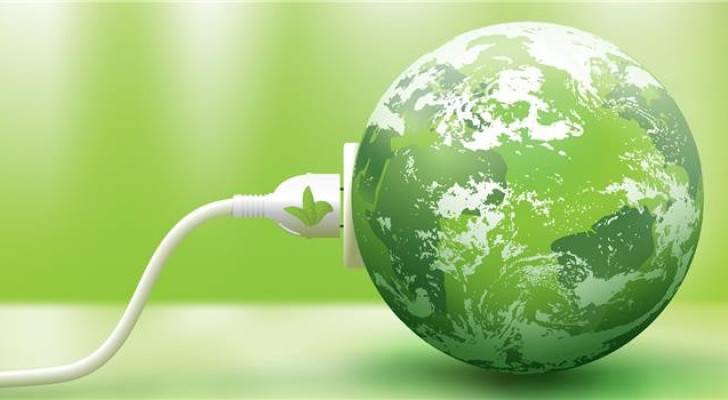Ministry of Energy’s guide: Simple steps to reduce household energy consumption
Ministry of Energy’s guide: Simple steps to reduce household energy consumption
With rising temperatures in Jordan, the need to think about how to conserve energy increases. The demand for cooling leads to higher electricity bills and additional pressure on energy networks.
In this context, the Ministry of Energy and Mineral Resources issued a guide for conserving and rationalizing energy consumption, which contains a set of simple guidelines that individuals and institutions can follow to reduce consumption.
Mobile phones and chargers:
The Energy and Minerals Regulatory Commission (EMRC) stated that only 5 percent of the charger's total consumption goes to charging the mobile phone, while the rest is wasted if the charger is left plugged in all the time.
Washers and dryers:
Washers and dryers are significant energy consumers. Energy consumption can be reduced by following these guidelines:
- Wash the largest possible amount of clothes per wash cycle to avoid frequent use.
- Dry clothes in the sun instead of using an electric dryer.
- Do not overload the washer beyond its capacity, and ensure that the water level matches the amount of laundry (for regular washers).
- Know the approximate annual operating costs of the washer before buying it and choose the most efficient one with an energy efficiency label.
- When using the dryer, it is better to use it continuously, as stopping and restarting lowers the temperature each time and requires more energy to bring it back to its original level.
Ironing clothes:
- Avoid using the iron intermittently to make the most of the iron's heat. It is advisable to turn off the iron a few minutes before finishing.
- Do not leave the iron connected to the power source if not ironing for an extended period.
- Set the iron to the appropriate temperature for the clothes being ironed.
- Dry damp clothes under the sun before ironing.
Kitchen energy consumption:
- Do not boil water in an open or wide pot; use a closed pot to boil it in less time.
- Keep the stove clean, as the reflectors under the stove burners reflect heat and increase the stove's efficiency.
- Turn off the electric stove a few minutes before finishing cooking, as it remains hot enough to complete the cooking process.
- Use the appropriate pot for the burner.
- When using the oven, avoid opening and closing it unnecessarily.
- Reheat food or bread after using the oven without turning it on again, using the stored heat.
- Use pressure cookers whenever possible.
- Place the pot on the burner before lighting it.
- Always ensure the burner flame is blue; if not, the stove needs maintenance.
- When using the oven, try to cook everything at once if possible.
- Avoid preheating the oven for more than five minutes.
Refrigerators and freezers:
- Reduce the number of times the refrigerator is opened.
- Cover cooked foods and liquids that release water vapor.
- Do not store food in quantities exceeding the refrigerator's capacity.
- Set the refrigerator temperature between 3-5°C, and the freezer temperature at -18°C.
- Avoid placing the refrigerator near any heat source or exposing it to sunlight.
- Perform regular maintenance on the refrigerator and seal any leaks if found.
- When buying a refrigerator, choose the best and most energy-efficient type that carries an energy efficiency label.
- Defrost regularly if the refrigerator does not have an automatic defrosting device.
- Clean the refrigerator condenser (back grid) at least twice a year.
- Ensure the rubber seals around the refrigerator door are intact.
- When taking food out of the freezer, it is better to thaw it in the refrigerator before use, as this adds coldness to the refrigerator.
- Arrange items inside the refrigerator so that the process of placing and removing items is quick and easy.
- Keep items organized inside the refrigerator with enough space for air circulation around the food.
- Disconnect the refrigerator if leaving the house for more than a week, clean it, and leave the door open.
Home:
- Close windows and doors to prevent hot air from entering.
- Seal gaps to prevent hot air from entering by placing fillers around door and window frames, exhaust fans, and any other places where wires and pipes pass through walls.
- Draw curtains to block sunlight while the cooling device is operating.
- Install heat-reflective and double-glazed windows to reduce heat transfer into the room.
- Clean the air conditioner's filter regularly, as dirty filters make it difficult for air to pass through, leading to higher energy consumption and increased bills.
- Ensure air conditioners are turned off when leaving the room or office.
- Set the air conditioner thermostat to 24 degrees Celsius, the most comfortable cooling temperature. Setting it lower increases energy consumption by up to 5% for each degree.
- Choose an air conditioner with the appropriate capacity for the space being cooled.
- Shading the air conditioner from the outside, if possible, reduces energy consumption.
- When buying a new air conditioner, choose one based on its energy efficiency and look for those with an energy efficiency label.




